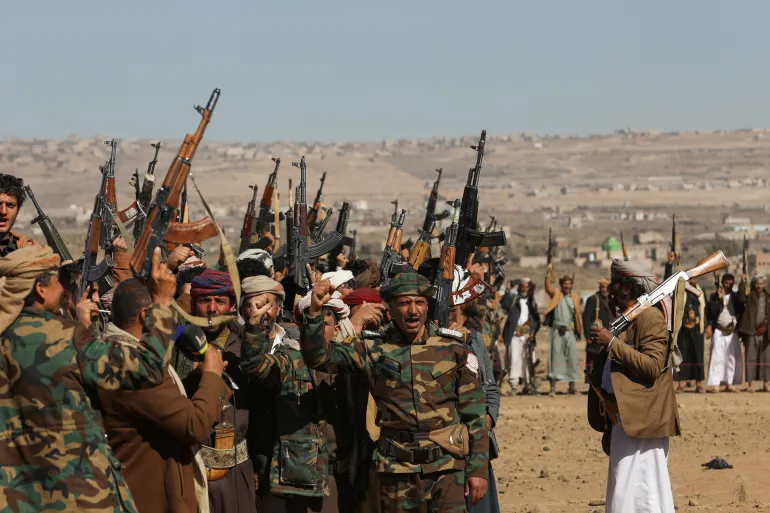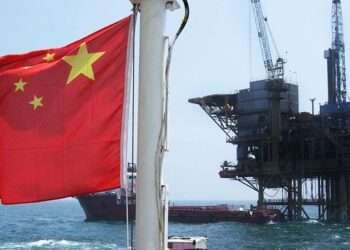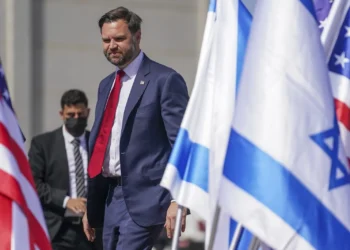Houthi Spokesperson, Mohammed Abdulsalam has responded to the U.S’ announcement that it has officially classified the Iran-backed militants as a “specially designated global terrorist” group.
Abdulsalam stressed that the group will not stop its attacks on ships heading to Israel from the Red Sea and Arabian Sea.
Abdulsalam also stated that the rebel group would “not back down in its position in support of the Palestinian people.”
He added that the US had no power to implement its decision against the Houthis and denied reports that Iran has been supplying arms to the group.
Abdulsalam also said in a post on X that the militant group considered its new terrorist designation by the U.S. to be “a badge of honor for Yemen for its support of Palestinian resistance in Gaza.”
The U.S has labelled the Houthis as a “Specially Designated Global Terrorist.”
In the statement that announced the U.S’ decision, White House National Security Advisor, Jake Sullivan, said that the designation will take effect 30 days from now to allow the US to “ensure robust humanitarian carve outs are in place” so that its action target the Iran-backed militant group and not the people of Yemen.
“The people of Yemen should not pay the price for the actions of the Houthis,” he added.
In a statement, U.S Secretary of State, Antony Blinken disclosed that during the 30-day implementation delay, the US government will conduct “robust outreach to stakeholders, aid providers, and partners who are crucial to facilitating humanitarian assistance and the commercial import of critical commodities in Yemen.”
However, aid officials have expressed concern.
Rights advocates warned that blacklisting the Houthis would complicate the work of humanitarian organisations operating in areas under the group’s control. Yemen is enduring one of the world’s worst humanitarian crises where millions of people are dependent on international aid.
The “Foreign Terrorist Organizations (FTO)” and “Specially Designated Global Terrorist (SDGT)” labels are not the same.
Oxfam America Associate Director, Scott Paul said that the decision would only add “another level of uncertainty and threat for Yemenis still caught in one of the world’s largest humanitarian crises.”
The SDGT is mainly focused on the finances of an individual or a group. So today’s announcement will freeze Houthi assets in the US. It will also prohibit American citizens from dealing financially with the Yemeni group.
And while “civil and criminal penalties may be assessed for violations”, according to the State Department, the designation is less potent in its secondary effects than the FTO label, which makes it a serious crime to provide support to a blacklisted group.
The FTO designation also sparks automatic US immigration restrictions to all members of the group “simply by virtue of their membership”, whereas the SDGT label incurs more narrow sanctions.
In its announcement today, the White House promised to include carveouts from sanctions “for food, medicine, and humanitarian assistance.”
U.S. Designation Plays Into Houthis’ Narrative
Hisham Al-Omeisy, a Yemeni Analyst living in Washington said that the U.S. designation plays into the Houthis’ narrative to the world that they are standing up to a superpower to champion Muslims everywhere.
Al-Omeisy said that at home, the designation helps the Houthis’ message to Yemenis that the U.S. is the cause of their suffering.
In the past, he said, the Houthis were angered that “the U.S. was basically treating them as a bug on the windshield.”
“Now, they’re like, ‘You know what, they respect us,’” he said of the Houthis’ attitude.
He said, “‘Yeah, we can go toe to toe with the Americans, right?’”
It’s not clear if any U.S. partners are working on similar sanctions.
READ ALSO: Houthi Attacks Send Shivers Down The Spines Of Shipping Companies






















